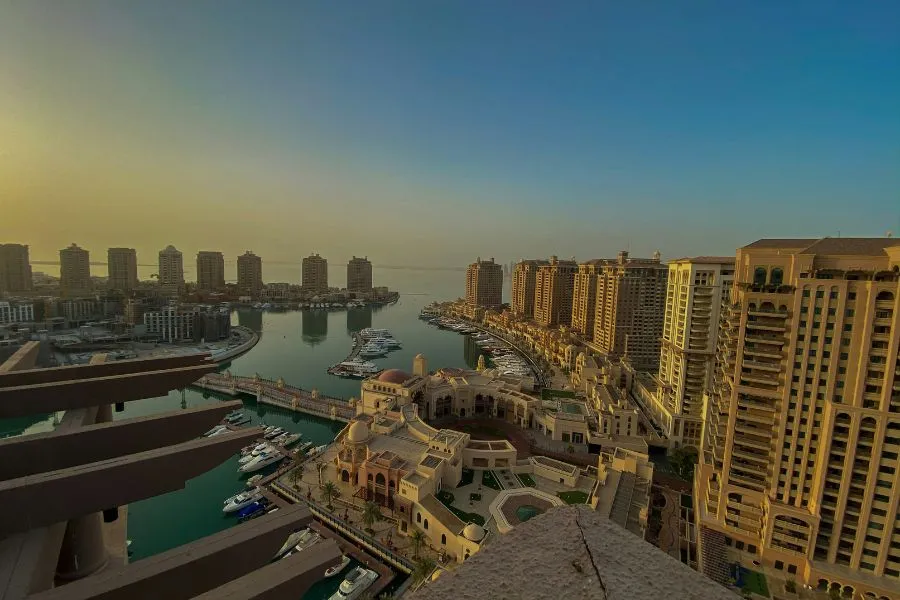When people think of Qatar, the first images that come to mind are glittering skyscrapers, luxury shopping avenues, and the buzzing energy of Doha. But beyond the world-class stadiums and futuristic developments, there is one thing that expatriates truly desire: permanent residency in Qatar. In this guide, we will explore how foreigners can secure long-term stability in the country, what eligibility criteria exist, and why Qatar’s Permanent Residency Card has become one of the most sought-after permits in the region.
Key Takeaways
Understanding Permanent Residency in Qatar
For decades, Qatar maintained strict residency rules, with long-term settlement seen as nearly impossible for foreigners. However, in 2018, the Qatari government introduced a new permanent residency framework, signaling a shift towards encouraging highly skilled professionals, investors, and long-term residents to make the country their home. The launch of the Permanent Residency Card, often simply called the PR card, is designed to reward individuals who have contributed to Qatar’s development.
Unlike temporary residence permits tied to employment sponsorships, the PR card allows holders more freedom in terms of work, business, and family life. It is not full citizenship, but it does provide a sense of stability that was previously out of reach for expatriates in the Gulf.
Eligibility Criteria for Qatar Permanent Residency
Eligibility is where things get a bit tricky. Not everyone qualifies for permanent residency in Qatar, as the government has limited the number of PR cards to a select group of individuals. In this guide, we will look at the main categories:
First, expatriates must have resided continuously in Qatar for at least 20 years if born outside the country, or 10 years if born in Qatar. This long-term residency requirement ensures that applicants have a genuine connection to the country rather than being temporary workers.
Second, applicants must demonstrate financial stability. Generally, this means having a stable income, a clean financial record, and assets that show economic contribution. In many cases, the minimum monthly income required is around 30,000 Qatari Riyals.
Third, applicants must have a clean criminal record and good conduct. Qatar places a strong emphasis on public order, meaning any history of legal issues could disqualify an applicant.
Finally, applicants should provide proof of their contribution to Qatar’s economy and society. Skilled professionals in fields like medicine, engineering, research, and education are often prioritised, as are investors who have significantly contributed to the local economy.
Benefits of the Qatar PR Card
So, what makes the PR card so valuable? The answer lies in the benefits it offers compared to regular residence permits.
Permanent residency holders can live in Qatar without the need for a local sponsor. This independence is a game-changer for expatriates, particularly those running businesses or working independently.
The PR card also allows ownership rights in specific real estate areas designated for foreigners. This is significant, as property ownership in Qatar has traditionally been limited. Additionally, holders have the right to invest in the economy with fewer restrictions, giving them opportunities to grow businesses or purchase property in prime locations.
Healthcare and education benefits are also part of the package. PR holders enjoy access to public healthcare and education at similar rates to Qatari citizens, a major financial relief for families who previously had to rely on costly private services.

Most importantly, the PR card allows family sponsorship. Holders can sponsor their spouse and children without the complications that often come with employment-linked residency permits.
How to Apply for Permanent Residency in Qatar
Applying for the PR card involves a structured process. Applications are submitted through the Ministry of Interior’s online portal, where applicants must provide supporting documents such as residency proof, income records, criminal clearance certificates, and evidence of contributions to Qatar’s development.
Once submitted, the application undergoes an evaluation process, where authorities assess the applicant’s eligibility against all legal requirements. It is worth noting that the government caps the number of PR cards issued annually at a relatively small figure. This makes the competition stiff and approval rates selective.
For many applicants, hiring a local legal advisor or consultant can make a significant difference in navigating the documentation process. Missing paperwork or incorrectly completed forms are among the most common mistakes that cause delays or rejections.
Timelines and Practical Challenges
The application timeline varies, but most successful applicants report waiting anywhere from a few months to over a year before receiving final approval. Qatar’s careful screening process ensures that only individuals who meet all requirements are awarded the PR card.
One of the most common challenges is proving continuous residence, especially for applicants who have taken extended trips abroad for work or family reasons. Another hurdle is meeting the financial stability requirement, which can be out of reach for middle-income expatriates.
Also Read: How to Get Permanent Residency in UAE 2025
Common Misconceptions About Qatar PR
There are several misconceptions surrounding Qatar’s PR scheme. Some believe that the PR card automatically leads to Qatari citizenship, which is not true. Citizenship remains highly restricted and is granted only in rare, exceptional cases.
Another misconception is that all long-term residents qualify for PR. In reality, eligibility is limited to highly skilled professionals, significant investors, and long-term contributors to the state. Simply residing in Qatar for 20 years does not guarantee approval without meeting the income and conduct requirements.
Final Thoughts
In this guide, we have explored the process of obtaining permanent residency in Qatar, from eligibility requirements to the benefits of the PR card. While the path is not open to everyone, for those who qualify, it offers long-term stability, independence, and a stronger sense of belonging in the country.
Qatar’s PR scheme is not just a legal pathway but also a recognition of the role expatriates play in building the nation. For professionals, investors, and families who meet the strict criteria, the PR card opens the door to opportunities and security that were once unimaginable in the Gulf.
Reference: https://portal.moi.gov.qa/wps/portal/MOIInternet/departmentcommittees/permanentresidency





